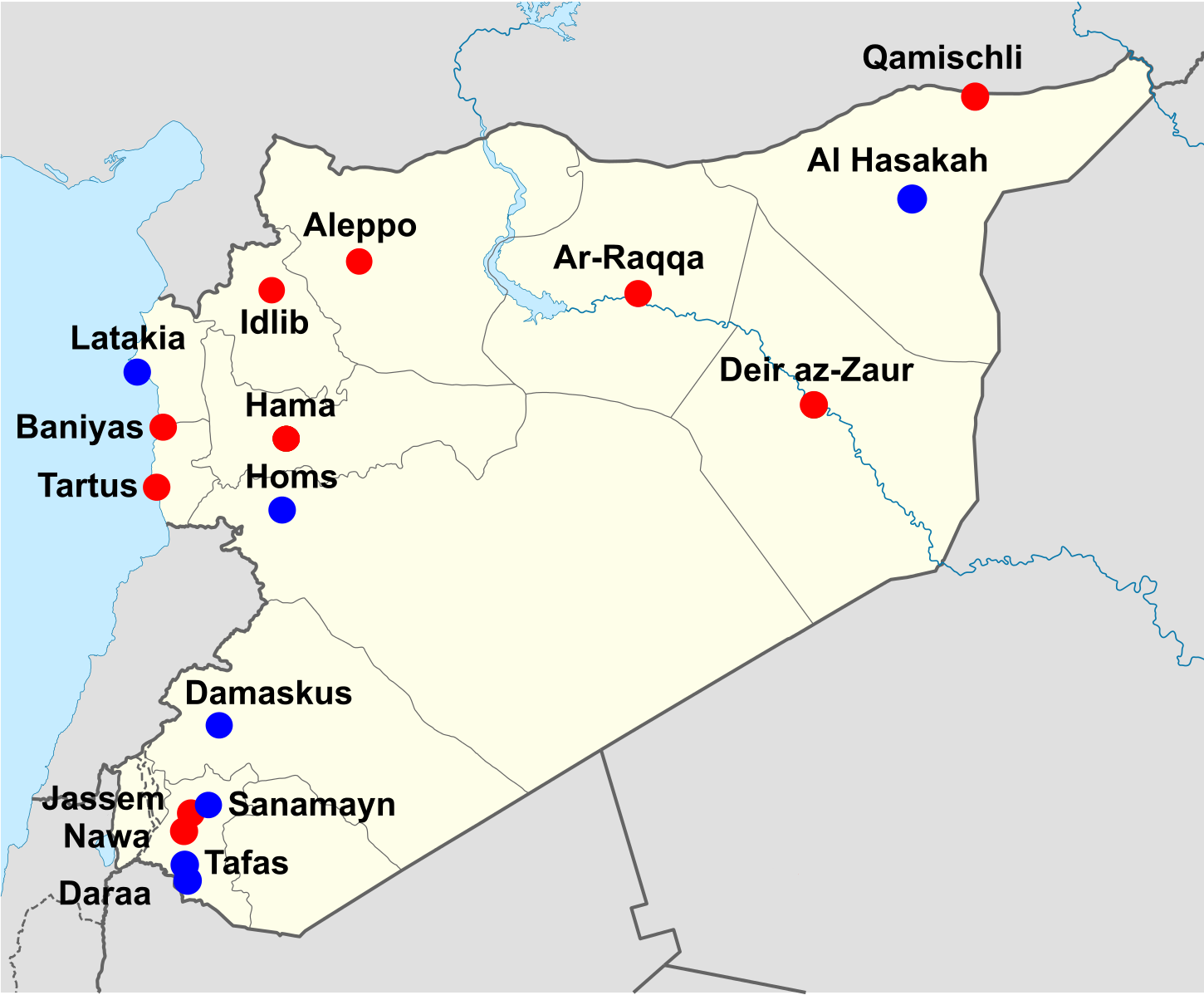The Forgotten Civilians in Syria's Idlib Province
A map of Syria showing the initial locations of protests in 2011, with Idlib featured in the top left (Wikimedia Commons).
Idlib, a small province located in northeastern Syria, was once home to 1.5 million people and now houses over three million. At least two-thirds are displaced nationals, according to Relief Web International.
Amidst Syria’s rendition of the Arab Spring in 2011, under despot Bashar Al-Assad, the Syrian army arrested, killed, and tortured thousands in response to the protests, reports the US Institute of Peace. According to Voa News, what began as peaceful protests spiraled into civil war, causing the biggest refugee crisis in history. Over 350,000 Syrians have been killed, 6.8 million fled the country, and another 6.7 million people were displaced within Syria.
The province of Idlib is one of few pockets no longer under Assad control, reports ABC News.
According to the BBC, since Assad’s regime lost regional control in 2015, a power vacuum has emerged. One of the groups vying for power is Hayat Tahrir al-Sham (HTS), a jihadist group once tied to Al-Qa`ida. HTS maintains majority control in Idlib, having developed the Syrian Salvation Government of over 5,000 employees and ten ministries.
The Middle East Institute reports the group’s control of the Bab al-Hawa crossing from Turkey into Idlib — the predominant aid pipeline into the province. Because the United States, the United Nations, and Turkey consider HTS a terrorist organizaion (New York Times), the HTS is not allowed to control the border crossing. In order to get around this blanket ban, however, HTS delegates citizens to control the crossing so the border remains open.
Under the Trump administration, U.S. policy aimed to replace Assad with democratic rebels. The Biden administration’s policy on HTS remains unclear (Foreign Policy). Meanwhile, millions of displaced Syrians, many of them women and children, are waiting in Idlib.

